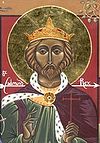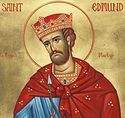

| Previous day | Next day |
| Old Style
November 20
|
Thursday |
New Style
December 3
|
|
26th Week after Pentecost.
Tone 8.
Nativity Fast. |
Wine and oil allowed.
|
![]() Forefeast of the Entry of the Most Holy Theotokos into the Temple.
Forefeast of the Entry of the Most Holy Theotokos into the Temple. ![]() St. Gregory of Decapolis (816).
St. Gregory of Decapolis (816). ![]() St. Proclus, archbishop of Constantinople (446-447).
St. Proclus, archbishop of Constantinople (446-447).
Martyr Dasius of Dorostolum in Moesia (284-305). Martyrs Eustace, Thespesius, and Anatolius, of Nicaea (312). Hieromartyr Nerses, bishop of Shahrqart (Kirkuk), and his disciple Martyr Joseph, and those martyred with them in Persia: Hieromartyrs John, Shapur, and Isaac, bishops of Seit Selok; Martyrs Guhshtazad, eunuch, Mari, Sasan, Tima, Noah, and Zaun, of Lashom; and Bautha, Denachis, Thecla, Dinaq, Tatun, Mama, Mazakya, Ana, Abyat, and Hatay (343). Venerable Diodorus the Abbot of Yuregorsk (1633). St. Parasceva (Rodimtseva), abbess of Toplovsky Convent (Simferopol) (1928).
New Hieromartyrs Macarius (Karmazin), bishop of Dnepropetrovsk, Arsenius (Dmitriev), abbot, of the Tikhvin Monastery, Eutychius (Kachur), abbot, of the St. Marcian Skete (Ukraine), and Hilarion (Pisarets), hieromonk of Glinsk Hermitage (1937). New Nun-martyr Ioannikia (Kozhevnikova), abbess of the Convent of the Entry of the Theotokos (Tikhvin) (1937).
St. Isaac, bishop of Armenia (440). St. Theoctistus the Confessor, of Constantinople (855). Martyr Edmund, king of East Anglia (869). St. Sozomen of Cyprus (12th c.).
Thoughts for Each Day of the Year
According to the Daily Church Readings from the Word of God
By St. Theophan the Recluse

Thursday. [I Tim. 3:1-3; Luke 16:1-9]
The parable is about the denounced unjust steward. Do you see how he managed to disentangle himself from his misfortune! If only we would all manage to arrange for ourselves a peaceful life upon our departure from this life! But no: Children of this world are in their generation wiser than the children of light. Why did the steward go to such pains? Because disaster was near. The nearness of misfortune aroused energy and quick-wittedness, and he quickly settled everything. But is our misfortune not near? Death could overtake us at any moment, and then: give an account of thy stewardship. Everyone knows this, but almost nobody moves. What is this insanity? Nobody thinks he will die right now, but all suppose that they will live another day or two; they don’t know the time, only that death will come sometime later. This is why misfortune is seen as something in the future. Misfortune is ahead, and any thought about what to do in case of misfortune is put off. Nobody thinks to remain incorrigible his entire life, but he simply puts off changing for the present day. But since one’s entire life is composed of present days and hours, any concern for change just does not come.
Friday. [I Tim. 4:4-8, 16; Luke 16:15-18, 17:1-4]
It is impossible but that offences will come: but woe unto him, through whom they come! Therefore, one cannot live offhand, uninhibitedly. One must look around carefully not to tempt anyone. The mind is arrogant and does not look at anyone; but it arouses temptations all around in deed, and even more, in word. Tempting increases and magnifies the woe of the tempter, but he does not sense this and even further expands his temptations. It is good that God’s threat in return for tempting here, on the earth, is almost never fulfilled in hopes of correction; it is put off until the future judgement and retribution; only then will the tempters feel how great is the evil of tempting. Here almost nobody thinks about whether he tempts or doesn’t tempt those around him in his deeds and words. Two sins which are very great in the eyes of God are not regarded as anything by people: tempting and condemnation. The tempter, according to the word of the Lord, would be better off not alive; he who condemns is already condemned. But neither the former nor the latter think about it and cannot even say whether they sin in any such way. What blindness, indeed, surrounds us and how carelessly we walk in the midst of death!
Articles
 St. Proclus the Archbishop of ConstantinopleSaint Proclus, Archbishop of Constantinople, from his early years devoted all his time to prayer and the study of Holy Scripture. |
 Martyrs Eustace, Thespesius, and Anatolius of NiceaThe Holy Martyrs Eustathius, Thespesius and Anatolius, natives of the city of Gangra, were the children of a rich merchant. |









